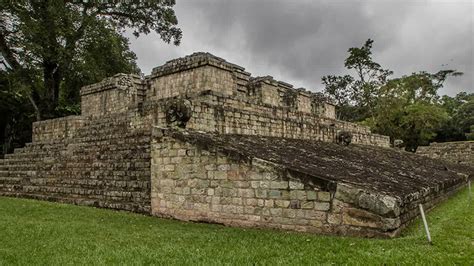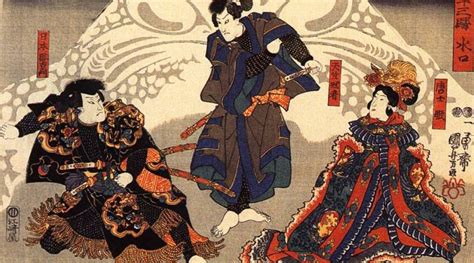Explore the rich history of our country, from early settlements to modern developments. Learn about the impact of colonization and the fight for independence.
Colonization and early settlements
Contents
Saint Lucia has a rich history of colonization and early settlements. The island was first inhabited by the Arawak and Carib people, who were skilled in agriculture and lived in small communities. In 1499, the island was visited by Europeans when Christopher Columbus sailed along the eastern coast, but it was not until the 17th century that the first European settlements were established. The English and the French both attempted to colonize the island, leading to conflicts and power struggles.
The English were the first to establish a permanent settlement in 1605, but the island changed hands between the two European powers several times over the years. The French also established their own settlements, and the island was fiercely contested between the two colonial powers throughout the 17th and 18th centuries. This period of colonization and early settlements was marked by violent conflicts and struggles for control, which significantly shaped the island’s history and culture.
During this time, the economy of Saint Lucia was based on sugar plantations and the labor of enslaved Africans. The harsh conditions and exploitation of the enslaved labor force led to numerous revolts and rebellions. The impact of slavery and the plantation economy can still be seen in the island’s social and cultural landscape today.
In 1814, Saint Lucia was officially ceded to Great Britain under the Treaty of Paris, ending the long-standing conflict between the English and the French. This marked the beginning of formal British rule on the island and the consolidation of British influence. The legacy of colonization and early settlements continues to be a significant aspect of Saint Lucia’s history and identity, shaping its cultural heritage and traditions.
Impact of French and British rule
Impact of French and British rule
Impact of French and British rule
Saint Lucia’s history was greatly shaped by the influence of French and British rule. During the 17th and 18th centuries, the island changed hands between these two European powers several times, each leaving a lasting impact on the culture, economy, and society of the island.
The French were the first to establish a settlement on Saint Lucia, and their influence is still evident in the island’s language, cuisine, and customs. The British later took control of the island, further shaping its development and leaving behind a legacy that can be seen in the island’s system of government and legal institutions.
Under French rule, the island experienced a period of prosperity and economic growth, with the establishment of sugar plantations and the importation of enslaved Africans to work the land. This legacy of slavery continues to affect Saint Lucia’s society today, as the descendants of these enslaved individuals make up a significant portion of the island’s population.
Following the British takeover, Saint Lucia became part of the British Empire and was subject to their colonial policies and governance. The British introduced new systems of education, transportation, and infrastructure, which have had a lasting impact on the island’s development.
In conclusion, the impact of French and British rule on Saint Lucia has been profound, and their legacies continue to shape the island’s culture, economy, and society to this day.
The fight for independence
Saint Lucia’s fight for independence was a long and arduous journey, marked by significant political and social upheaval. The struggle for autonomy from colonial rule began in the mid-20th century, as the people of Saint Lucia sought to break free from the constraints of British colonialism. The movement for independence was driven by a strong sense of national identity and a desire for self-governance, leading to widespread protests and demonstrations against colonial rule.
Under the leadership of influential political figures such as Sir John Compton and George Charles, the people of Saint Lucia made significant strides towards asserting their independence. The formation of political parties and grassroots organizations played a pivotal role in mobilizing the populace and demanding self-determination. The fight for independence was not without its challenges, as opposition from colonial authorities and internal conflicts posed significant obstacles along the way.
However, the determination and resilience of the Saint Lucian people ultimately prevailed, culminating in the declaration of independence on February 22, 1979. This monumental achievement marked the end of centuries of colonial subjugation and the beginning of a new era of self-rule and sovereignty for Saint Lucia.
The fight for independence is a pivotal chapter in Saint Lucia’s history, shaping the nation’s political landscape and instilling a strong sense of national pride. The legacy of this struggle continues to resonate in the cultural fabric of Saint Lucia, serving as a testament to the indomitable spirit of its people.
Saint Lucia has witnessed significant political and social changes in recent years. The country has transitioned from being a British colony to an independent nation, and the impact of this change can be seen in its modern political landscape. Since gaining independence in 1979, Saint Lucia has seen a shifting political climate, with various parties vying for power and influencing the country’s government policies and decisions.
Furthermore, the rise of social movements and activism has played a crucial role in shaping the social fabric of Saint Lucia. Issues such as gender equality, environmental conservation, and human rights have become prominent political and social issues, influencing the way the country is governed and how its people interact with one another.
In addition, the influence of global political and social developments cannot be overlooked. Saint Lucia has had to navigate its position in the global community, adapting to changes in international relations and diplomacy. The country’s leaders have been tasked with addressing global challenges, such as climate change and trade agreements, while also balancing the social needs of its citizens.
Overall, the modern political and social developments in Saint Lucia reflect the transformation of the country from a former colony to an independent nation, as well as the impact of global forces on its government and society.
Cultural heritage and traditions
Saint Lucia, a small island nation in the Caribbean, is rich in cultural heritage and traditions that have been passed down through generations. The local customs and traditions of the Lucian people are deeply rooted in the island’s history and have been influenced by the various cultures that have inhabited the island over the centuries.
From the indigenous Amerindian people to the African slaves and European colonizers, each group has left its mark on the island’s culture, shaping the unique blend of customs and traditions that can be found in Saint Lucia today.
One of the most significant traditions in Saint Lucia is the annual celebration of the island’s independence. The people of Saint Lucia come together to commemorate their freedom with colorful parades, live music, and traditional dances. This event is a reflection of the island’s resilience and pride in its cultural identity.
Another important aspect of Saint Lucia’s cultural heritage is its rich culinary traditions. The fusion of African, French, and Caribbean influences has created a diverse and flavorful cuisine that is a source of national pride. Local dishes such as green fig and saltfish, callaloo, and bouyon are beloved by both locals and visitors alike.
Traditional music and dance are also integral to the cultural fabric of Saint Lucia. The island’s folk music, known as calypso and soca, has a strong African influence and is characterized by lively rhythms and uplifting lyrics. The traditional dances, such as the quadrille and the juba, are a testament to the resilience and creativity of the Lucian people.













